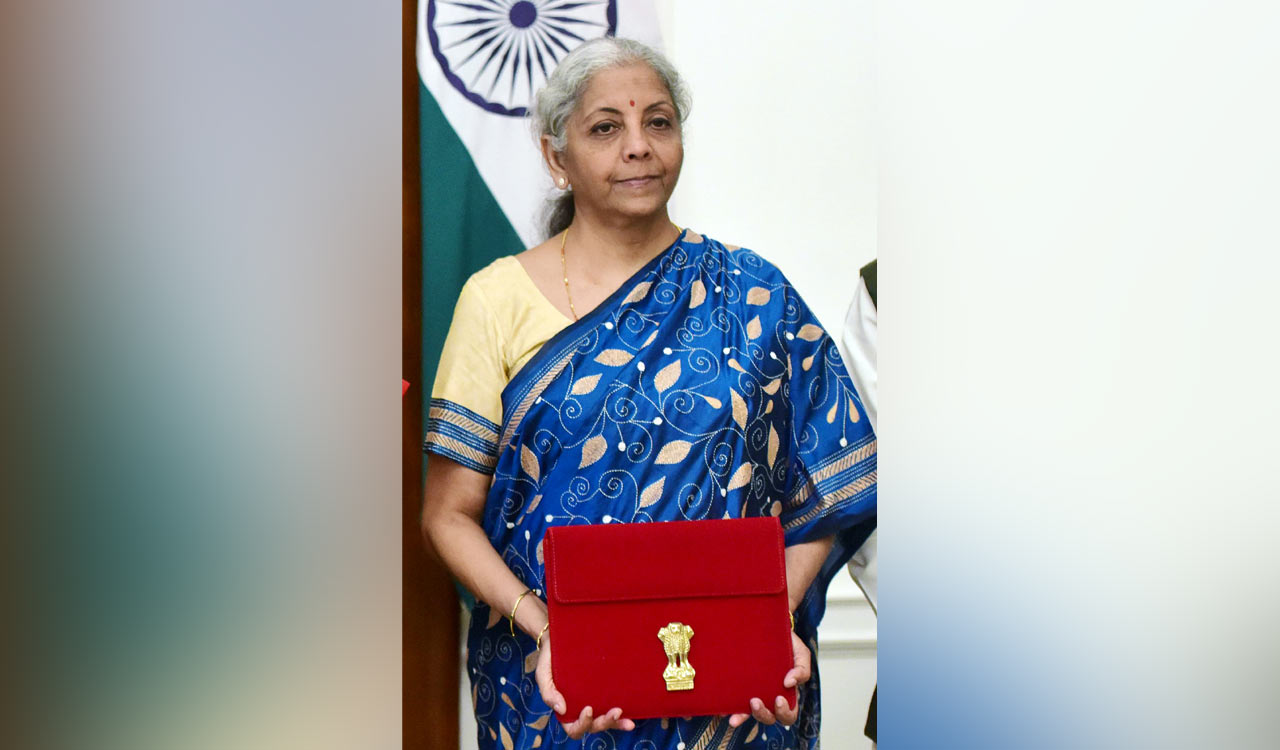The real problems, unemployment, dwindling rural incomes however, found no mention in the Finance Minister’s speech
Published Date – 1 February 2024, 11:45 PM

Those hoping for big bang populist announcements from the interim Budget 2024-25 were left disappointed as the union Finance Minister Nirmala Sitharaman’s brief speech read more like a report card of the NDA government’s performance in the last ten years, with a sprinkle of measured policy intentions. To be fair, interim Budgets offer limited scope for manoeuvrability for governments to unveil their development vision. This was the last Budget of the NDA government before the general elections. A full-fledged Budget will be presented by the newly-elected government in July. A significant feature of the Budget was that the personal income tax slabs were left untouched nor were any populist announcements. However, corporate tax has been reduced to 22%. Significantly, there was no new announcement of privatisation of state companies. The Finance Minister focused on a path of fiscal consolidation with continued interest in capital expenditure and other social welfare services. She has set an ambitious fiscal deficit target of 5.1% in the coming fiscal. If Budgets are indicators of the mood in the government, then this interim Budget reflected a more confident and self-assured ruling dispensation, a few months ahead of the Lok Sabha elections. Exuding confidence that good governance and a string of pro-poor schemes would help the BJP return to power for the third term, Sitharaman, presenting her sixth straight Budget, promised that the NDA 3.0 would then unveil a detailed roadmap for a ‘Viksit Bharat’ (Developed India). The Budget pegged the capital expenditure for the next fiscal year at Rs 11.1 lakh crore, reflecting an 11% increase from the current fiscal year.
A new housing scheme for the middle classes, building two crore houses under PM Aavas Yojana, free electricity for ten million houses via rooftop solar programme, big focus on the infrastructure sector, an 18% increase in the Defence Budget, long-term interest-free loan to States for promoting tourist centres on a global scale, setting up hospitals in all districts and vaccination for cervical cancer are among the key announcements made in the Budget. However, the real problems of the country’s economy found no mention in the Finance Minister’s speech. Rising unemployment, dwindling rural incomes and growing inequalities have not been addressed. With no change in tax slabs, the salaried class was left disappointed. They have been hoping for cuts to help deal with the ever-rising living costs. While the Budget talked about buoyant tax collections and stable GST implementation, the benefits are yet to permeate to the middle class. Aspects like a higher standard deduction, enhanced housing loan interest exemptions, or a tweaking of 80C instruments would have provided some cushion. For consumption-led growth to sustain, leaving more money in the hands of the middle class pays economic dividends. One hopes that as the macro fundamentals stay on track, there is room for pragmatic tax concessions in the days ahead.




